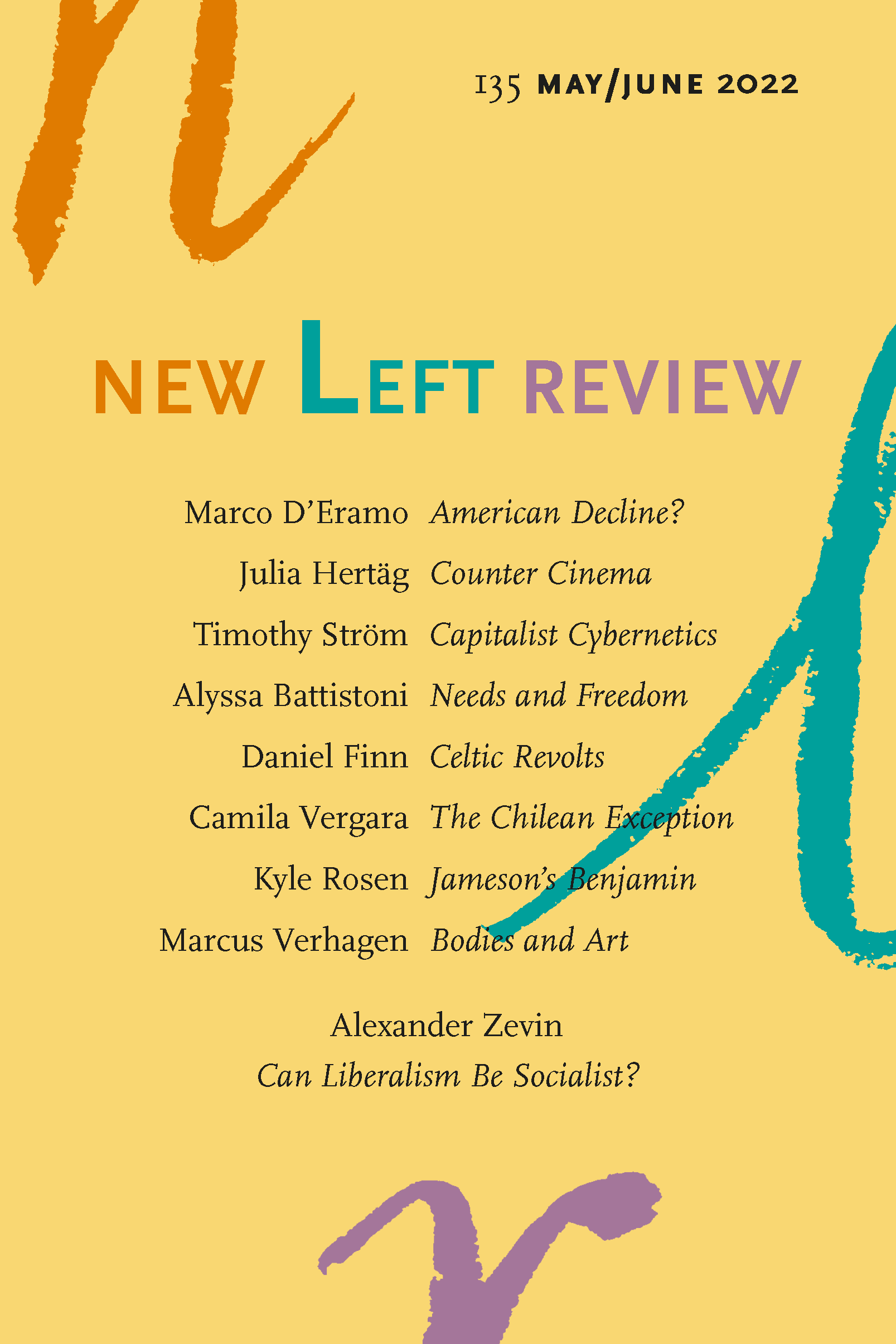Predictions of American decline have multiplied over the past half-century, in tandem with the country’s expanding world power. Marco D’Eramo balances the strengths of a novel mode of dominion—military, financial, digital, diplomatic—against growing domestic strains levied by political deadlock and economic globalization.
Current debates on techno-capitalism often underplay the relative autonomy of the digital realm. Responding to Evgeny Morozov’s ‘Critique of Techno-Feudal Reason’ in NLR 133/4, Timothy Ström outlines the abstractionist and expansionist logic of a novel cybernetic-capitalist form, originating at the apex of the US imperial system.
Is a new dissident cinema emergent in Germany? In defiance of the glut of ‘heritage’ productions and navigating a stultifying state-funding bureaucracy, an inter-generational set of filmmakers working out of the Berlin School tradition interrogates the regional hegemon’s past and present.
Comparative study of Sinn Féin and the SNP, theoretically the two principal opponents of the continuation of the present form of the UK state. What headaches do they cause its ruling parties?
Following Chile’s resounding vote to reject the Pinochet-era constitution, the struggle to draft a replacement has split along popular and official lines. Legal theorist Camila Vergara describes how the autonomous energies of the neighbourhood cabildos have been pitted against the conservatism of the ruling bloc.
As museums and galleries attempt to curate a unique ‘visitor experience’, a vitalist current in the contemporary art world—based on audience interaction and participation—is gaining traction. What is the political character of such works?
Alexander Zevin on Helen McCabe, John Stuart Mill, Socialist. Does the author of On Liberty offer a way forward for the left?
Alyssa Battistoni on Pierre Charbonnier, Affluence and Freedom. A material history of liberty, tracking conceptions of it from the preindustrial age to the Anthropocene.
Kyle Rosen on Fredric Jameson, The Benjamin Files. The writings of Walter Benjamin reconceived as modernist experiments in allegory.
